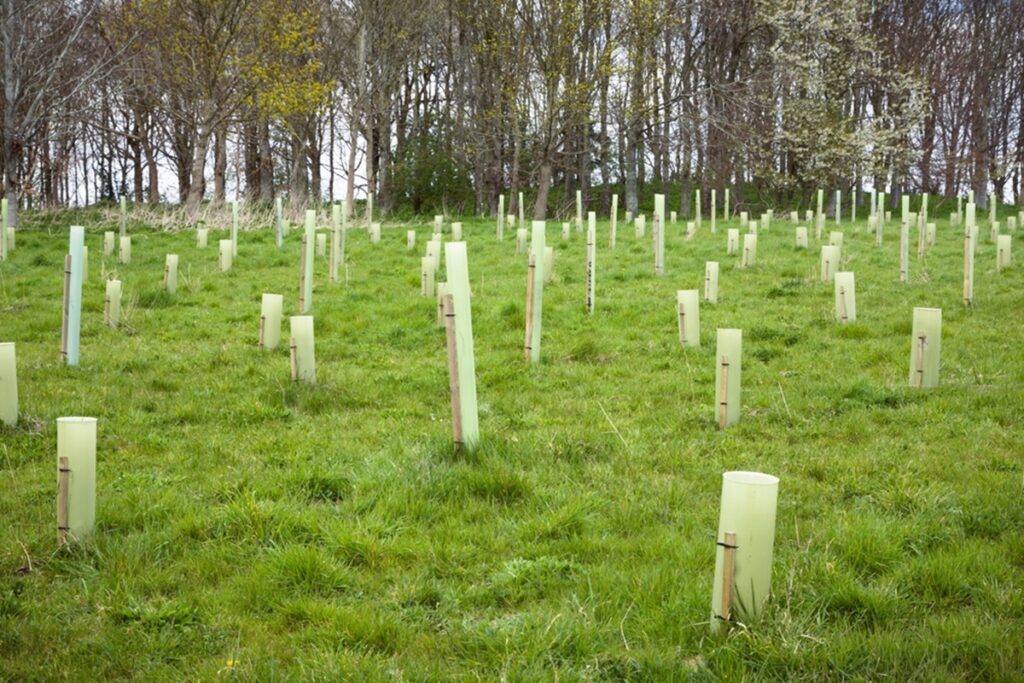Biodiversity Net Gain and Birmingham City Council
The introduction of Biodiversity Net Gain (BNG) requirements through the Environment Act 2021 has transformed the way development projects in England are planned and approved. Under this legislation, almost all developments must deliver at least a 10% measurable improvement in biodiversity compared to the pre-development baseline. This is now a mandatory requirement, not just a planning policy preference, and it applies alongside other planning considerations made by local authorities.
For developers in Birmingham in the West Midlands this means that a Biodiversity Net Gain plan is a core part of the planning process and must be factored in from the very earliest stages of project design to ensure compliance with legislation and Environment Agency and Natural England guidelines.

How to Achieve Biodiversity Net Gain
Implementing mandatory Biodiversity Net Gain involves assessing the existing baseline biodiversity value of a site’s natural environment within its red line boundary before development, and forecasting its value after the works are completed. The difference between the two scores must show at least a 10% increase in biodiversity.
This can be achieved on-site, through measures such as habitat creation, improving existing habitats, wetland restoration, green infrastructure and wildlife-friendly landscaping, or off-site through the purchase of biodiversity units from registered providers. The chosen approach must be backed by a clear, evidence-based plan that local planning authorities can approve.
Biodiversity in Birmingham
Birmingham, the UK’s second-largest city, is often referred to as the country’s “green capital” thanks to its extensive network of parks, canals, and green spaces. From Sutton Park, one of the largest urban parks in Europe, to the River Rea corridor, the city boasts a wide range of natural habitats supporting protected and notable species.
These include bats, badgers, great crested newts, kingfishers, and a variety of rare plants and invertebrates. Many of these existing habitats form part of wider ecological networks that connect urban green spaces to the surrounding natural environment, making them vital for biodiversity.
Birmingham City Council is committed to nature conservation and works to protect and enhance biodiversity through its planning policies and environmental strategies. This means that Biodiversity Net Gain plans for developments in Birmingham are subject to detailed review. Developers are expected to avoid unnecessary habitat loss, integrate habitat enhancements into site designs to benefit local communities and future generations. Property developers must also contribute to the objectives of the city’s Nature Recovery Strategy and the environmental priorities of the West Midlands Combined Authority.

Preparing a BNG Assessment
The first step in preparing a Biodiversity Net Gain plan is to commission a baseline habitat survey by a qualified ecologist. This biodiversity net gain assessment involves mapping and assessing all wildlife habitats and natural features on the site using the government’s Biodiversity Metric tool. The tool calculates a biodiversity value for the site based on habitat type, size, condition, and distinctiveness, with higher values assigned to rarer or better-quality habitats. The ecologist then works with the developer to model the predicted post-development biodiversity value to enable measurable improvements, incorporating proposed landscaping, creating new habitats and land management measures.
If the post-development score falls short of the 10% biodiversity net gain target, additional mitigation or compensation measures must be designed. Local authorities generally prefer biodiversity gains to be delivered on-site, but where this is not possible, developers may purchase biodiversity units away from the development site, from habitat banks in the region. These last resort off-site measures must be legally secured and managed for at least 30 years, as set out in the Environment Act.
Mitigation Hierarchy
Along with many local planning authorities, Birmingham City Council applies the mitigation hierarchy when evaluating Biodiversity Net Gain plans. This requires developers to first avoid impacting important habitats wherever possible. If impacts cannot be avoided, they should be minimised through sensitive site design and construction practices. Only after avoidance and minimisation have been explored should compensation measures, such as habitat creation away from the development site be used. Biodiversity Net Gain plans must clearly demonstrate how this hierarchy has been applied.
Elements of a BNG Report
A comprehensive BNG plan for a Birmingham development will include the baseline survey results, Biodiversity Metric calculations for both pre- and post-development scenarios, detailed habitat creation and enhancement proposals, and a long-term management plan. It should also align with local biodiversity priorities, including the Birmingham & Black Country Nature Improvement Area and the city’s green infrastructure strategy. Monitoring and reporting commitments must be included to show compliance with biodiversity net gain principles throughout the required 30-year management period.

Delivering Biodiversity Net Gain
Birmingham offers many opportunities for achieving measurable biodiversity gains. These include restoring wetland habitats along the River Cole, enhancing grasslands in urban fringe areas, creating new habitats such as woodlands and hedgerows, and integrating green roofs and living walls into city-centre developments. Incorporating wildlife-friendly Sustainable Drainage Systems (SuDS) can also help achieve net gain while managing flood risk and improving climate resilience.
For projects where on-site delivery is limited, our consultancy can help identify suitable habitat projects away from the development site within the West Midlands that meet both legislative requirements and local ecological priorities. We can also manage the legal and ecological aspects of securing and maintaining these habitats for the long term.

Professional BNG Support
As a specialist ecological consultancy operating UK-wide, we have extensive experience preparing BNG plans that meet both national standards and local planning authority expectations. For developments in Birmingham, we bring a strong understanding of the city’s habitat types, protected species, and policy requirements, ensuring that your plan is fully compliant and tailored to local conditions. From the initial site surveys through to submission-ready documentation, we handle every stage of the process to help planning applications proceed through the local council planning system.
Our BNG services
Our bng assessment services cover baseline habitat surveys, Biodiversity Metric assessments, habitat creation and enhancement design, long-term management planning, and assistance with off-site BNG delivery to comply with Natural England stipulations and help you achieve biodiversity net gain.
We also liaise directly with Birmingham City Council and other stakeholders to ensure your application for planning permission aligns with local strategies and achieves genuine net gain and biodiversity benefits. Whether your development plans involve major developments, sites of special scientific interest or small developments in the West Midlands, our consultants have in depth knowledge of biodiversity net gain requirements and can assess how to leave a site in a measurably better state.
Get a Free Quote for BNG Plans in Birmingham
If you are planning a development in Birmingham, it is essential to consider your BNG requirement as early as possible. Engaging an ecologist during the pre-application phase will allow you to incorporate biodiversity measures into your design, reduce the risk of costly changes later, and improve your chances of securing planning permission.
We provide free, no-obligation quotes for BNG plans in Birmingham, tailored to your site and project needs. Simply contact us today to discuss your development and discover how we can help you meet your Biodiversity Net Gain obligations. Our team will arrange a site visit, carry out all required assessments, and prepare a clear, robust biodiversity gain plan to support your application for planning permission and leave the natural environment in a measurably better state.